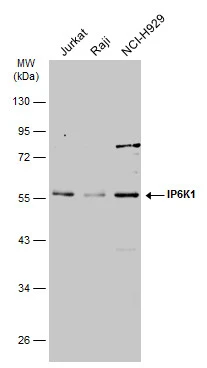
Various whole cell extracts (30 μg) were separated by 10% SDS-PAGE, and the membrane was blotted with IP6K1 antibody (GTX103949) diluted at 1:1000. The HRP-conjugated anti-rabbit IgG antibody (GTX213110-01) was used to detect the primary antibody.
IP6K1 antibody
GTX103949
ApplicationsImmunoFluorescence, ImmunoPrecipitation, Western Blot, ImmunoCytoChemistry, ImmunoHistoChemistry, ImmunoHistoChemistry Paraffin
Product group Antibodies
ReactivityHuman, Mouse
TargetIP6K1
Overview
- SupplierGeneTex
- Product NameIP6K1 antibody
- Delivery Days Customer9
- Application Supplier NoteWB: 1:500-1:10000. ICC/IF: 1:100-1:1000. IHC-P: 1:100-1:1000. *Optimal dilutions/concentrations should be determined by the researcher.Not tested in other applications.
- ApplicationsImmunoFluorescence, ImmunoPrecipitation, Western Blot, ImmunoCytoChemistry, ImmunoHistoChemistry, ImmunoHistoChemistry Paraffin
- CertificationResearch Use Only
- ClonalityPolyclonal
- Concentration0.22 mg/ml
- ConjugateUnconjugated
- Gene ID9807
- Target nameIP6K1
- Target descriptioninositol hexakisphosphate kinase 1
- Target synonymsIHPK1, PiUS, inositol hexakisphosphate kinase 1, ATP:1D-myo-inositol-hexakisphosphate phosphotransferase, Pi uptake stimulator, inositol hexaphosphate kinase 1, insP6 kinase 1
- HostRabbit
- IsotypeIgG
- Protein IDQ92551
- Protein NameInositol hexakisphosphate kinase 1
- Scientific DescriptionThis gene encodes a protein that belongs to the inositol phosphokinase (IPK) family. This protein is likely responsible for the conversion of inositol hexakisphosphate (InsP6) to diphosphoinositol pentakisphosphate (InsP7/PP-InsP5). It may also convert 1,3,4,5,6-pentakisphosphate (InsP5) to PP-InsP4. Alternative splicing occurs for this gene; however, the full-length nature of all transcript variants has not yet been described. [provided by RefSeq]
- ReactivityHuman, Mouse
- Storage Instruction-20°C or -80°C,2°C to 8°C
- UNSPSC41116161

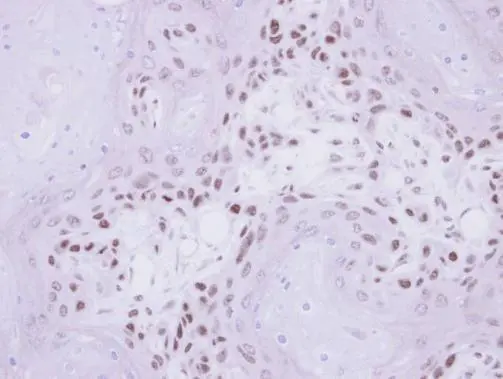
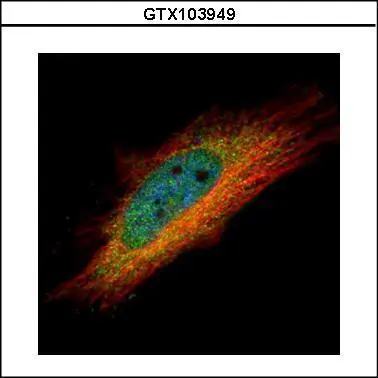
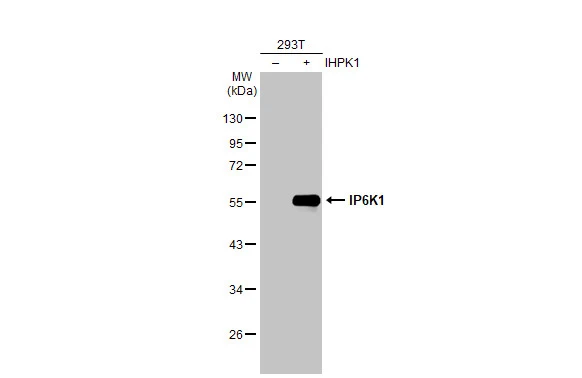
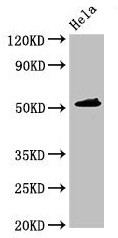
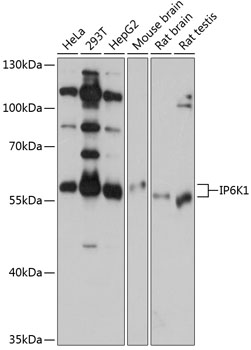


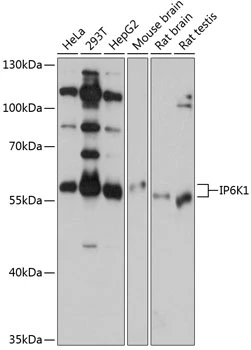
![Non-transfected (–) and transfected (+) 293T whole cell extracts (30 μg) were separated by 10% SDS-PAGE, and the membrane was blotted with IP6K1 antibody [GT10611] (GTX628258) diluted at 1:20000. The HRP-conjugated anti-mouse IgG antibody (GTX213111-01) was used to detect the primary antibody.](https://www.genetex.com/upload/website/prouct_img/normal/GTX628258/GTX628258_41120_20211224_WB_B_w_23061202_151.webp)